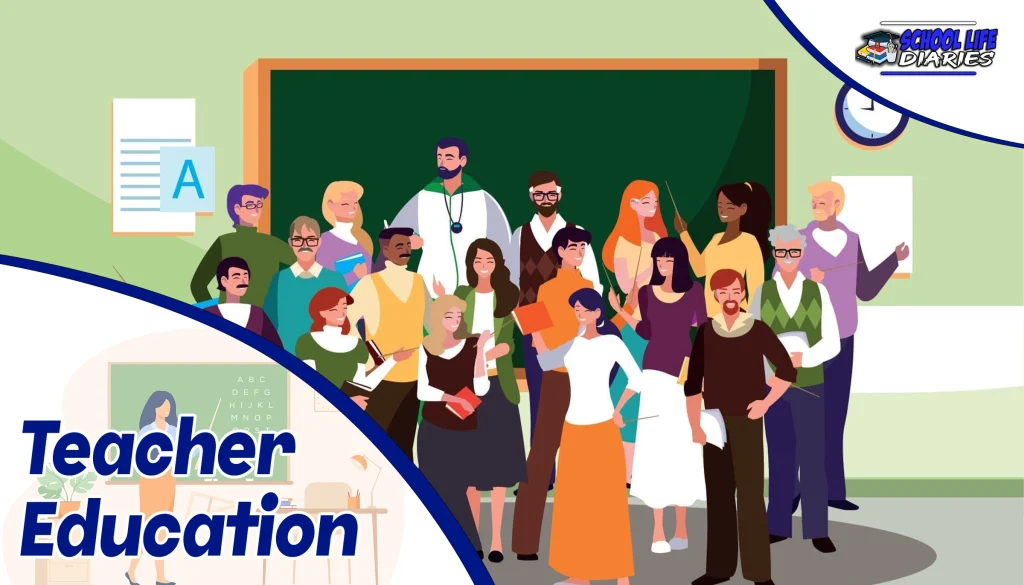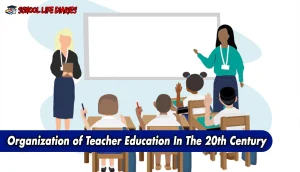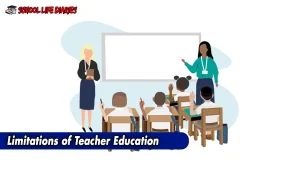Teacher education is a vital aspect of the education system that aims to prepare future educators for their roles in teaching and supporting students’ learning. It involves the development of knowledge, skills, and attitudes necessary for effective teaching and learning processes.
In this article, we will explore what teacher education is, its evolution over time, and its significance in developing effective educators. Over the years, teacher education has undergone significant changes as society’s needs have shifted. The increasing demand for qualified teachers has led to the establishment of various teacher education institutions worldwide.
Despite these changes, there are still some limitations and challenges associated with teacher education programs. Therefore, understanding what teacher education entails is crucial in preparing educators who can meet the demands of today’s educational landscape.
Organization of Teacher Education In The 20th Century
The organization of teacher education in the 20th century underwent significant changes, driven by various social and political factors. The history of teacher education is closely linked with the development of pedagogical approaches and curriculum design.
In the early part of the century, teacher training programs were often seen as an apprenticeship model where students would learn from experienced teachers through observation and practice. Reforms in teacher education began to take place in the mid-20th century, led by concerns about inadequate preparation for teaching and a need for more rigorous standards.
Accreditation and certification emerged as ways to ensure that new teachers had met certain criteria before entering the workforce. This also helped establish consistency across different institutions offering teacher education programs. Funding and resources played a critical role in shaping teacher education during this time period.
Financial support from government agencies was key to building infrastructure such as libraries, laboratories, and classrooms that could support effective instruction. Global perspectives also became increasingly important as educators sought to compare practices across different countries and cultures to identify best practices that could be implemented locally.
The Evolution of Teacher Education
Throughout history, the preparation of future educators has undergone significant transformations. The evolution of teacher education has been shaped by various pedagogical shifts, curriculum changes, technological advancements, and globalization impacts. These factors have contributed to shaping the current state of teacher education.
Pedagogical shifts in teacher education have seen a move away from traditional teaching methods towards more innovative approaches that use real-world contexts to enhance learning. This shift has led to an increased focus on student-centered learning where teachers are encouraged to be facilitators rather than just dispensers of knowledge.
There is now a greater emphasis on developing teachers’ reflective practices so that they can continuously evaluate their teaching methods and improve their practice. Technological advancements have revolutionized teacher education by providing new tools and resources for both pre-service and in-service teachers.
Teachers can now access online platforms that offer professional development courses, virtual classrooms for remote learning, and digital assessment tools that help them track their students’ progress.
Limitations of Teacher Education
One major challenge facing the preparation of future educators is the limited focus on practical experience in teacher education programs. While theoretical knowledge is essential, it does not necessarily translate into effective classroom teaching. Educational reforms have highlighted the need for more rigorous and relevant curriculum design, which should include hands-on experiences that allow student teachers to learn by doing.
Classroom management is also a critical aspect of teacher preparation that cannot be fully addressed without practical experience. Student teachers may learn techniques for managing behavior through textbooks and lectures, but they need opportunities to practice these skills in real-life situations. Without this experiential learning, new teachers may find themselves overwhelmed when faced with challenging classroom dynamics.
While theoretical knowledge remains an important component of teacher education programs, there is a growing recognition of the importance of practical experiences for preparing effective educators. Curriculum design needs to incorporate more hands-on learning opportunities that engage students in real-life situations, allowing them to develop the skills needed for successful classroom management and instruction.
Teacher Education Institution
Teacher education institutions play a crucial role in shaping the future of education by preparing individuals to become effective educators. These institutions provide aspiring teachers with the necessary knowledge and skills to excel in their profession.
Teacher education institutions face numerous challenges and opportunities that impact their ability to deliver high-quality education. One of the critical challenges facing teacher education institutions is developing innovative curricula that keep pace with changes in educational practices.
Teacher education pedagogy plays a vital role in promoting student-centered learning experiences that foster critical thinking skills among students. Pedagogical approaches such as problem-based learning, inquiry-based learning, and collaborative learning can help teachers create dynamic classroom environments conducive to student success.
Issues and Problems in Teacher Education
Issues and problems in the preparation of future educators revolve around developing innovative curricula, revisiting accreditation standards, promoting student-centered pedagogy, and incorporating research trends to deliver quality teacher training programs. One of the biggest challenges is the lack of alignment between what is taught in teacher education programs and what is expected from teachers in their classrooms.
This gap can be bridged by incorporating more practical experiences into teacher preparation, such as internships or student teaching opportunities that allow future teachers to apply their knowledge in real-world settings. There needs to be a stronger focus on providing ongoing professional development for existing teachers so they can keep up with new innovations and best practices. Innovations and reforms are necessary to address these challenges.
Teacher education institutions need to constantly update their curricula based on research findings and feedback from practicing teachers. They must also embrace technological advancements that enhance learning outcomes, such as online courses or virtual reality simulations.
What Is The Importance of Education in the Development of Effective Educators?
The cultivation of proficient educators is crucial for the advancement and sustainability of quality education in society. The role of an educator is to not only impart knowledge but also to create an environment that fosters learning, encourages critical thinking, and promotes personal growth.
Effective teaching techniques, learning strategies, classroom management, student engagement, and pedagogical theories are all essential components of teacher education programs that prepare aspiring teachers to become effective educators.
Effective teaching techniques involve creating a positive learning environment that engages students by using interactive methods such as group activities or discussions. Learning strategies help teachers cater their lessons to different learning styles and abilities.
Classroom management skills enable teachers to maintain discipline while allowing students to express themselves freely. Student engagement is an important aspect of effective teaching because it promotes active participation in the learning process.
Pedagogical theories provide insights into how students learn and how teachers can modify their approach based on individual needs. Teacher education plays a significant role in developing effective educators who can positively impact the lives of their students.
It equips them with the necessary skills and knowledge required to teach effectively and engage learners from diverse backgrounds. By utilizing effective teaching techniques, implementing learning strategies suited to individual needs, and maintaining classroom discipline while promoting freedom of expression.
What Are the Key Components of A Comprehensive Education Program?
A comprehensive teacher education program should include a range of components that are crucial for preparing future educators to be effective in their profession. Curriculum design is one such component, which involves developing courses and content that align with current educational standards and best practices.
This ensures that teachers are equipped with the necessary knowledge and skills to deliver quality education to their students. Pedagogical training is another key component of a comprehensive teacher education program.
This involves providing teachers with the tools they need to teach effectively, such as understanding learner psychology, classroom management techniques, and engaging teaching methods. Practical experience is also important, as it allows future educators to apply what they have learned in real-world settings under the guidance of experienced mentors.
How Does Education Contribute To The Professional Growth And Continuous Learning of Educators?
In the previous subtopic, we discussed the key components of a comprehensive education program. Now, let’s delve into how such programs contribute to the professional growth and continuous learning of educators. Professional development is crucial for teachers as they need to keep up with advancements in pedagogical skills, classroom management strategies, and curriculum design.
Teacher training programs help educators refine their skills and gain new ones that enable them to better serve their students. These programs provide teachers with opportunities to explore emerging trends in teaching methodologies, learn about technology tools that can be used in the classroom, and understand different learning styles that exist among students.
By participating in these training sessions, teachers can leverage new techniques to create an engaging and effective learning environment for their students. This exchange of ideas helps promote critical thinking as well as fosters a sense of collaboration amongst teachers across disciplines.
Conclusion:
The teacher has gone through a significant evolution over the past century, with changes in organization, structure, and content. The importance of teacher education cannot be overstated, as it plays a critical role in developing effective educators who can meet the needs of diverse learners and promote student success.
A comprehensive teacher program should include key components such as foundational knowledge, pedagogical skills development, practical experience, and ongoing professional development. Despite its importance, teacher education faces several challenges that limit its effectiveness.









